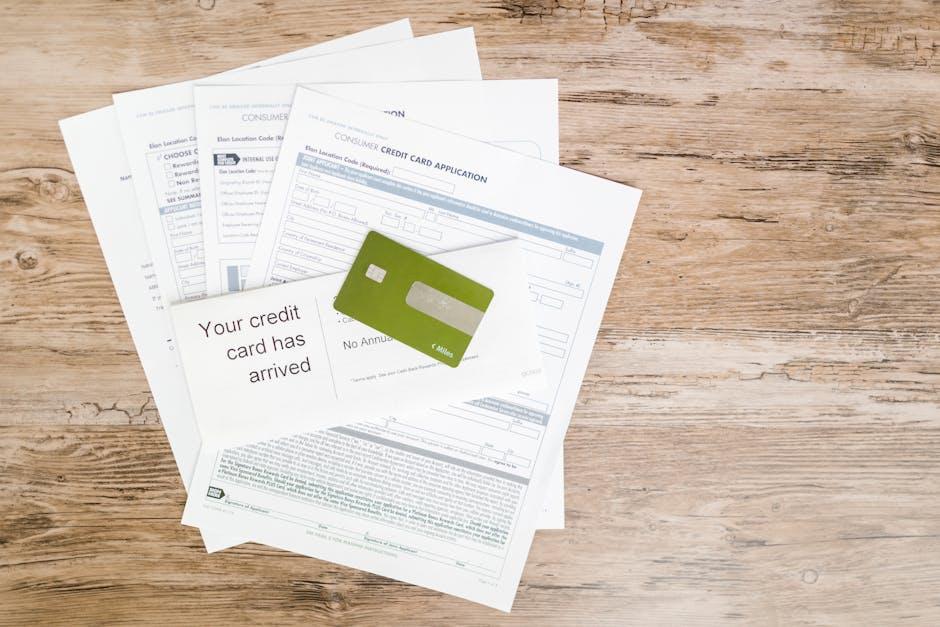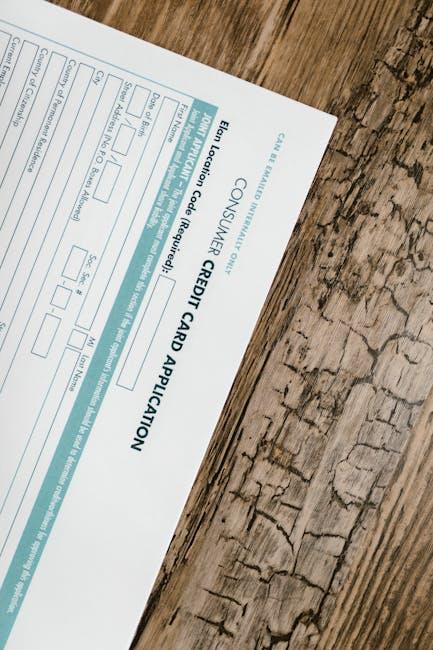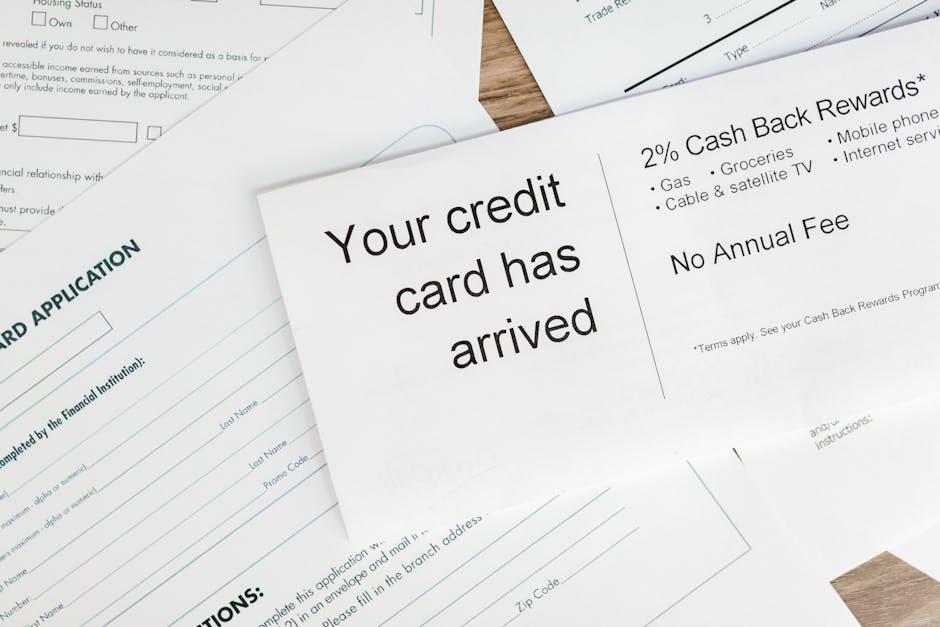In today’s financial landscape, securing your first credit card can be a pivotal step towards building a solid credit history and enhancing your financial independence. Mastering the steps to obtain your first credit card not only empowers you with the purchasing power needed for everyday expenses but also lays the groundwork for future investments and financial opportunities. This article will guide you through the essential steps, from understanding credit scores and researching card options to mastering the application process. By the end, you’ll be equipped with the knowledge and confidence to take this significant step towards financial responsibility.
Understanding the Benefits of Having a Credit Card
Having a credit card can greatly enhance your financial flexibility and security. Here are some of the key benefits of owning a credit card:
- Builds Your Credit History: Regular use of a credit card, coupled with timely payments, helps establish and improve your credit score. A strong credit history is crucial when applying for loans or mortgages.
- Rewards and Cash Back: Many credit cards offer rewards programs that allow you to earn points or cash back on purchases. This can lead to savings on future purchases or travel benefits.
- Emergency Backup: In unforeseen situations, such as car repairs or medical expenses, having a credit card can provide immediate access to funds without dipping into your savings.
- Consumer Protection: Credit cards often come with strong fraud protection and purchase protection policies. If your card is lost or stolen, you are typically not held responsible for unauthorized transactions.
- Convenience: Credit cards are widely accepted, making them a convenient option for both online and in-store purchases. They also eliminate the need to carry cash.
- Travel Benefits: Some credit cards provide perks like no foreign transaction fees, travel insurance, and access to airport lounges, enhancing your travel experience.
Here’s a table comparing common features of popular US credit cards:
| Credit Card | Rewards Type | Annual Fee | Introductory Offer |
|---|---|---|---|
| Chase Freedom Unlimited | Cash Back | $0 | $200 after spending $500 in the first 3 months |
| Discover it Cash Back | Cash Back | $0 | Cash Back Match in the first year |
| American Express Gold Card | Rewards Points | $250 | 35,000 points after spending $4,000 in the first 3 months |
| Capital One Venture Rewards | Rewards Miles | $95 | 60,000 miles after spending $3,000 in the first 3 months |
In summary, having a credit card is about more than just making purchases. It’s about leveraging benefits that can aid in financial management and personal security while paving the way for future borrowing opportunities.

Navigating the Application Process with Confidence
Applying for your first credit card can feel daunting, but knowing the right steps can make the process much easier. Here are some key strategies to navigate the application process with confidence:
- Understand Your Credit Score: Before you apply, check your credit score. Many credit card issuers require a score of at least 600 for approval. Free resources like Credit Karma or the annual credit report from Equifax, TransUnion, and Experian can help you gauge where you stand.
- Research Different Credit Cards: Look for cards designed for beginners. Some popular options include:
- Discover it® Secured Credit Card
- Capital One Platinum Credit Card
- OpenSky® Secured Visa® Credit Card
- Gather Required Documents: You typically need the following:
- Proof of identity (e.g., driver’s license, Social Security number)
- Income details (pay stubs, bank statements)
- Address verification (utility bill or lease agreement)
- Check Eligibility Requirements: Each issuer has different criteria. Ensure you meet the basic requirements, including age (usually 18 or older in the U.S.) and residency.
- Complete the Application: You can apply online or in-person. Follow the prompts carefully and provide accurate information to avoid delays or denials.
- Be Mindful of Your Credit Utilization: Once approved, try to keep your credit utilization below 30%. This shows responsible usage and improves your credit score.
- Monitor Your Credit Card Activity: Regularly check your statements for unauthorized charges and stay on top of payment due dates to avoid late fees and negative impacts on your credit score.
Remember, securing a credit card is just the beginning of building your credit history. Manage it wisely and use it as a tool for your financial growth.
| Credit Card Name | Key Features | Annual Fee |
|---|---|---|
| Discover it® Secured Credit Card | Cashback rewards, no annual fee | $0 |
| Capital One Platinum Credit Card | No annual fee, beneficial for building credit | $0 |
| OpenSky® Secured Visa® Credit Card | No credit check required, reports to all three credit bureaus | $35 |

Choosing the Right Card for Your Financial Goals
When it comes to building your credit profile, selecting the right credit card is crucial. Given the variety of options available, each tailored to different financial goals and lifestyles, understanding how to choose wisely can set you on the path to success.
Here are some factors to consider:
- Credit Score: Before applying, check your credit score. Some cards are more accessible for those with limited or poor credit history, while others require a strong score.
- Rewards Programs: If you travel frequently or dine out often, consider cards that offer points or cash back on these purchases. Look for sign-up bonuses to maximize your rewards.
- Annual Fees: While some cards come with annual fees, others offer no costs. Weigh the benefits of rewards and perks against the fee to ensure you’re making a cost-effective decision.
- Interest Rates: Pay attention to the Annual Percentage Rate (APR). If you plan to carry a balance, choose a card with a lower interest rate.
- Promotional Offers: Many cards provide 0% APR for an introductory period. This can be beneficial for managing large purchases without accruing interest initially.
- Credit Limits: Verify the typical limits associated with each card, as this can impact your spending ability and credit utilization ratio.
To visualize your choices, here’s a simple comparison table that highlights some popular cards for first-time users:
| Card Name | Annual Fee | Rewards | Introductory Offer | APR |
|---|---|---|---|---|
| Chase Freedom® Student Credit Card | None | $50 bonus after first purchase | 0% for first 15 months | 14.99% – 23.74% |
| Discover it® Secured Credit Card | None | Cash back on every purchase | Double cash back first year | 22.99% |
| Capital One® Secured Mastercard® | None | No rewards | None | 26.99% |
Choosing the right credit card involves weighing these factors against your personal financial goals. Whether you’re looking to build credit, earn rewards, or achieve a low-interest rate, taking the time to research will lead you to a card that complements your financial journey.

Building a Strong Credit History from Day One
Establishing a solid credit history from your first credit card is essential for future financial opportunities. Here are some effective strategies to help you build that strong foundation:
- Start with a Secured Credit Card: If you’re new to credit, a secured card can be an ideal starting point. With a secured credit card, you deposit a sum as collateral that serves as your credit limit, reducing risk for the lender.
- Make On-Time Payments: Your payment history accounts for 35% of your credit score. Pay at least the minimum payment by the due date to avoid late fees and potential damage to your score.
- Keep Credit Utilization Low: Aim to use less than 30% of your credit limit. For example, if your limit is $1,000, keep your balance below $300. This demonstrates responsible credit use.
- Diversify Your Credit Mix: Once you’re comfortable, consider adding different types of credit, such as an installment loan or an additional credit card. This can positively impact your credit score over time.
- Monitor Your Credit Report: Regularly check your credit reports for errors or suspicious activity. You can obtain free reports from AnnualCreditReport.com. Dispute any inaccuracies to maintain a strong credit profile.
Understanding how actions affect your credit is crucial:
| Action | Impact on Credit Score |
|---|---|
| On-time payments | Positive |
| High credit utilization | Negative |
| Applying for multiple cards | Potentially negative if done too often |
| Keeping old accounts open | Positive (length of credit history) |
Lastly, consider these tips to enhance your credit journey:
- Set Up Auto-Pay: Automating your payments ensures you never miss a due date.
- Utilize Credit Monitoring Services: Many banks offer free monitoring services to help you track your score and receive alerts for any changes.
- Learn About Credit Scores: Familiarize yourself with the different scoring models, such as FICO and VantageScore, to understand what lenders see.

To Conclude
As you embark on your journey to secure your first credit card, remember that knowledge is your most powerful ally. By understanding the prerequisites, shopping wisely, and managing your credit responsibly, you lay the foundation for a strong financial future. With patience and care, this crucial step can open doors to opportunities like building credit history, managing expenses effectively, and even unlocking better financial products in the future. So take these insights to heart, make informed choices, and step confidently into a world of financial empowerment. Your journey to mastering credit begins now!











